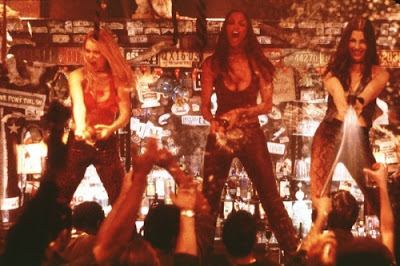 The Scoop:
The Scoop:This HBO original, which won a Golden Globe for Best Television Movie, tells the behind-the-scene stories of Orson Welles' crusade to make "Citizen Kane." (RKO 281 was the production number assigned to "Citizen Kane" by the studio.) Although it is a little on the short side at just over 80 minutes and rushes through many of the details, it features several great performances and offers an engaging look at the friendship between Welles and Herman J. Mankiewicz.
Liev Schrieber gives a surprisingly good performance as Welles, John Malkovich is up to his usual schtick as Mankiewicz, and Marion Davies is another one of those bimbo roles Melanie Griffith was born to play. And even though James Cromwell's interpretation of William Randolph Hearst borders on Don Corleone territory, it isn't distracting.
Most importantly, this film makes the point that "Citizen Kane" was as much about Welles himself as it was about Hearst. Director Benjamin Ross and writer John Logan highlight many of the contradictory foibles -- both his storytelling genius and his self-destructive arrogance -- that would make Welles a major figure in film history, but would also eventually ruin him creatively.
Best Line:
"It is not my life you sabotaged with your movie, Mr. Welles. My battle with the world is almost over. Yours, I'm afraid, is just begun."
Side Note:
Based on the documentary "The Battle Over Citizen Kane" (1996).
Companion Viewing:
"Citizen Kane" (1941).
Links:
IMDb.
Logan's script.
Take a Look:
Welles and Bernard Herrmann (Kerry Shale) tackle the score:
Welles and Mankewicz discuss Heart's involvement in the death of director Thomas Ince (followed by scenes from "The Cat's Meow," a film about the Ince case):








